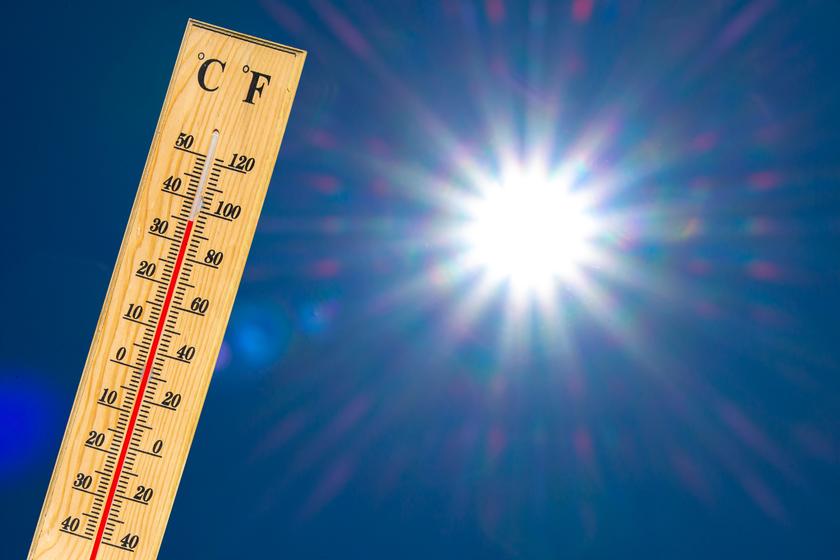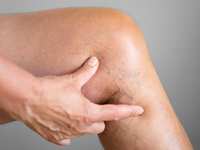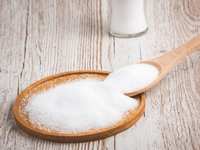5 Heart Problems & Medications That Can Make You More Vulnerable to Heat

When planning to be out in the heat, especially when it's particularly scorching outside, there are some obvious things to think about, like how you plan to stay hydrated and whether there will be shade.
But you may not have considered how your heart health or the heart medications you're taking should be factored into your decision-making.
Hot weather doesn't just increase the risk of heat exhaustion and heat stroke. It also increases the stress placed on your heart. This burden can be highly dangerous for some people.
"Extreme heat can increase the risk of life-threatening cardiovascular events for people with heart disease or taking certain heart medications," says Dr. Juan Carlos Rozo, a cardiologist at Houston Methodist. "Extremely cold temperatures can, too, but those aren't conditions we see as often here in Houston."
While somewhat rare, the complications Dr. Rozo mentioned can be dire. According to a 2022 study published in Circulation, 1 in 100 heart disease deaths are linked to extremely hot or cold temperatures. And the Environmental Protection Agency reports that while it's hard to pin down a true number, estimates suggest that the connection between extreme heat and heart complications is linked to about a quarter of heat-related deaths.
"Unfortunately, we are noticing a significant increase in extreme conditions over the last few decades, so this is an increasingly important topic to discuss," says Dr. Rozo. "People with heart conditions need to be aware of the risks and be more mindful about how to safely adjust to spending time outdoors."
How heat affects the heart
It's no secret that heat raises your body temperature. It's why, on a hot day, you sweat — your body's natural cooling mechanism. But that's not all that happens.
"Heat increases the metabolic demand on the body and, in turn, the burden placed on the heart and vascular system," says Dr. Rozo. "To help cool the body down, the heart works harder to circulate more blood throughout your body."
When you also become dehydrated, blood volume also decreases, forcing your heart to pump and beat even harder. (Related: PODCAST: Is Water Enough to Keep You Hydrated?)
A healthy person shouldn't have a problem dealing with this temporary stress on the heart, so long as they don't let things escalate — identifying and correcting dehydration and taking steps to prevent heat illness.
But for people with heart disease, extreme heat can be a serious stressor — so much so that it can contribute to life-threatening cardiac events, including heart attack and acute heart failure.
The temperature isn't the only factor to consider. Humidity plays a role, too. High humidity makes it harder for sweat to dissipate from the skin because there's already a lot of moisture in the air. Since evaporation of sweat, specifically, is what helps release body heat, this means that it's even easier for someone to overheat on really humid days.
But Dr. Rozo notes that low humidity days can get people into trouble, too. You might not "feel" the heat as much — making the level of threat deceiving.
"When it's humid, the conditions often become so uncomfortable that people are less likely to be outside," explains Dr. Rozo. "There's more of an early awareness about the risks. But when you are in extreme dry heat, it's easier to get dehydrated without even noticing."
Heart problems and medications that make a person more vulnerable to the heat
Here are five heart conditions or medications that make a person more vulnerable to the heat:
- Heart failure
- Arrhythmia
- Previous heart attack
- Diuretics used to treat heart failure and high blood pressure
- Medications used to treat high blood pressure
"In the Circulation study mentioned, it was reported that the risk of experiencing a cardiovascular event linked to extreme temperatures was most pronounced for people with heart failure," warns Dr. Rozo.
What's more, people with heart failure are prone to dehydration since managing fluid intake can get tricky. And treating the condition often requires taking medications that make it harder to maintain adequate hydration.
"We usually say to drink plenty of water if you plan to be outdoors, but heart failure patients need to be careful since drinking too much water can increase blood volume and strain the heart," adds Dr. Rozo. "And these patients are almost always on a medication that makes it easier for them to get dehydrated, which further exacerbates the issue."
Those medications include diuretics and blood pressure medications — but anyone taking these drugs, not just those with heart failure, will need to be careful in the heat.
"Diuretics increase urine output," explains Dr. Rozo. "This decreases the amount of fluid moving through the vessels to help lower blood pressure, but urinating more also makes the person more prone to dehydration. Other blood pressure medications work differently but elicit a similar result. When dehydration adds onto the effect of these medications, blood pressure can drop dangerously low."
How to protect your heart health in the heat
Anyone can develop heat exhaustion and heat stroke, but having a heart condition or taking heart medications means you'll need to take extra steps to stay safe as the temperature rises.
"As a rough estimation, once the temperature climbs toward 90° Fahrenheit and above, these patients will need to be more mindful of how they adjust for hotter weather," recommends Dr. Rozo.
Tips for protecting your heart health when it's sweltering outside:
- Stay cool by using fans or seeking air conditioning often
- Avoid being outdoors at the hottest parts of the day
- Plan strenuous outdoor activities either before the sun rises or after it sets
- Seek shade when outdoors
- Dress appropriately by wearing loose, lightweight and light-colored clothing
- Drink plenty of water (but be mindful of how much if you have heart failure)
- Be sure to take medications used to manage heart conditions
- Know the warning signs of dehydration (headache, fatigue, lightheadedness, dry mouth) and quickly take steps to counteract it
"It's also a good idea to routinely check in with your doctor about your condition and any medications you're taking," says Dr. Rozo. "Never stop taking a heart medication without first consulting your doctor — this is very dangerous. But your doctor might recommend temporarily adjusting the dosage of your medications if needed."
Katie McCallum

















